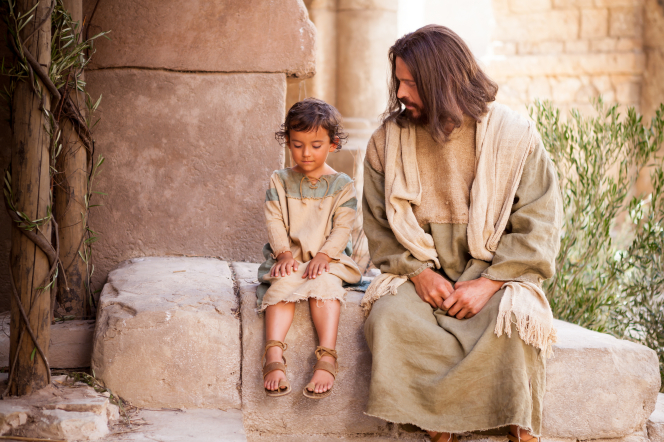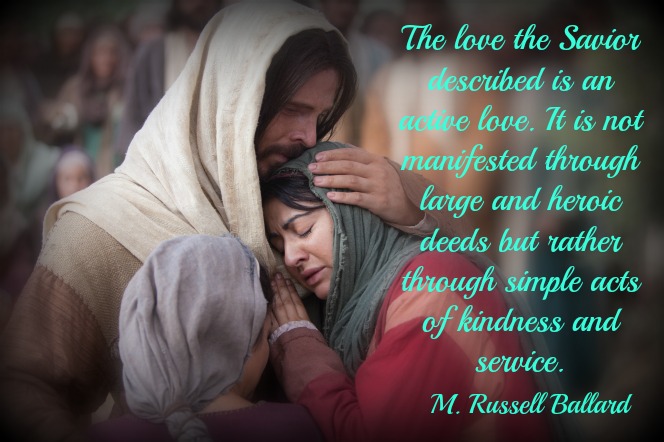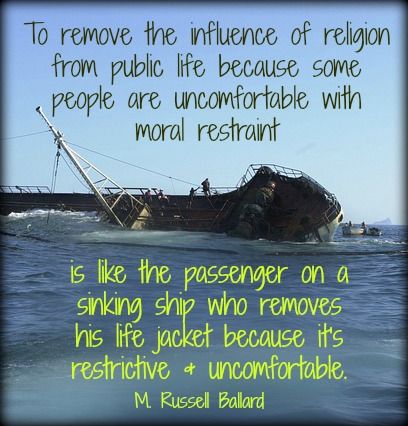As a lifelong member of The Church of Jesus Christ of Latter-day Saints, I have been taught of the Savior’s love for us and the power of His Atonement for as long as I could remember. But as I journey through life, my appreciation and understanding deepens as I rely more fully upon the Savior. There is a truth that I am just beginning to grasp hold of, and it is this: To the Savior, our pain is personal. The late President James E. Faust said:
Our Redeemer took upon Himself all the sins, pains, infirmities, and sicknesses of all who have ever lived and will ever live. No one has ever suffered in any degree what He did. He knows our mortal trials by firsthand experience. It is a bit like us trying to climb Mount Everest and only getting up the first few feet. But He has climbed all 29,000 feet to the top of the mountain. He suffered more than any other mortal could. (Italics added.)
Jesus Christ took upon Himself our heartaches, trials, tragedies and triumphs—and in doing so they became personal for Him. It is often through these experiences that the Savior becomes personal for us. When we begin to understand this, we begin to more fully understand the Savior Himself. And when we more fully understand the Savior, we gain a greater appreciation and a greater ability to apply these lessons in our own lives. Here are four truths that helped me more fully understand the love that the Savior has for me, personally.
Jesus Christ is Concerned with the One
The scriptures teach that Jesus Christ “numbereth His sheep, and they know Him” (1 Nephi 22:25). It must follow that the Savior knows each one of His sheep—how else could He know if one was lost? For me, this is hard to comprehend. It’s easy to believe that Heavenly Father and Jesus Christ love us—as in all of Our Heavenly Father’s children— but do They really know and love me? After all, with the billions and billions of people who have ever lived, live now or will ever live, how can They have a personal knowledge of one individual? Elder M. Russell Ballard said:
Sadly, in today’s world, a person’s importance is often judged by the size of the audience before which he or she performs. That is how media and sports programs are rated, how corporate prominence is sometimes determined, and often how governmental rank is obtained. That may be why roles such as father, mother, and missionary seldom receive standing ovations. Fathers, mothers, and missionaries “play” before very small audiences. Yet, in the eyes of the Lord, there may be only one size of audience that is of lasting importance—and that is just one, each one, you and me, and each one of the children of God. The irony of the Atonement is that it is infinite and eternal, yet it is applied individually, one person at a time.
This statement brings into focus how profoundly individual the love of the Savior is for each one of us. The scriptures also teach us of the love that the Savior has for us. The New Testament records that “Jesus wept” after seeing the despair and sorrow of Mary and Martha upon the death of their beloved brother Lazarus. (See John 11:1-45.) Of this story, Sister Linda S. Reeves, at the time a counselor in the General Relief Society presidency, said:
Apostle James E. Talmage wrote, “The sight of the two women so overcome by grief … caused Jesus to sorrow [with them] so that He groaned in spirit and was deeply troubled.” This experience testifies of the compassion, empathy, and love that our Savior and our Heavenly Father feel for each of us every time we are weighed down by the anguish, sin, adversity, and pains of life.
… Our Heavenly Father and our Savior, Jesus Christ, know us and love us. They know when we are in pain or suffering in any way. They do not say, “It’s OK that you’re in pain right now because soon everything is going to be all right. You will be healed, or your husband will find a job, or your wandering child will come back.” They feel the depth of our suffering, and we can feel of Their love and compassion in our suffering.
One experience that has helped me feel the individual love of the Savior is in the partaking of the sacrament during our Latter-day Saint Sunday worship services. The Savior instituted the sacrament during His Last Supper in Jerusalem, when he blessed and passed the bread and wine to His Apostles. It is an individual renewal of the covenants made at baptism, one of which is that we will always remember the Savior. But in the last year and a half, this has become even more personal for me. Because now, I can’t have regular bread. So during the passing of the bread, one of the young men must make a special trip back to the table where the bread is blessed and bring me the tray with gluten-free bread. Every time this happens, it is a symbolic reminder to me that the Savior knows and loves me. And each time, I feel the special love that Jesus Christ and Heavenly Father have for specifically for me.
Prayer is Our Individual Communion with God
When Jesus Christ was on the earth, He taught us how to pray. (See Matthew 6:9-13.) Why is this? Because prayer is our personal communication with God in the name of His Son. Elder Richard G. Scott said:
Prayer is a supernal gift of our Father in Heaven to every soul. Think of it: the absolute Supreme Being, the most all-knowing, all-seeing, all-powerful personage, encourages you and me, as insignificant as we are, to converse with Him as our Father. Actually, because He knows how desperately we need His guidance, He commands, “Thou shalt pray vocally as well as in thy heart; yea, before the world as well as in secret, in public as well as in private.”
It matters not our circumstance, be we humble or arrogant, poor or rich, free or enslaved, learned or ignorant, loved or forsaken, we can address Him. We need no appointment. Our supplication can be brief or can occupy all the time needed. It can be an extended expression of love and gratitude or an urgent plea for help. He has created numberless cosmos and populated them with worlds, yet you and I can talk with Him personally, and He will ever answer.
Through our individual prayers, we can commune with our Father in Heaven in the name of His Son, Jesus Christ, and come to know Them as They know each one of us. Often we are the ones who distance ourselves from Them—because sometimes it’s difficult to imagine Them always reaching out for us. But They are. Elder Scott said:
Don’t worry about your clumsily expressed feelings. Just talk to your compassionate, understanding Father. You are His precious child whom He loves perfectly and wants to help. As you pray, recognize that Father in Heaven is near and He is listening. …
Should you ever feel distanced from our Father, it could be for many reasons. Whatever the cause, as you continue to plead for help, He will guide you to do that which will restore your confidence that He is near. Pray even when you have no desire to pray. Sometimes, like a child, you may misbehave and feel you cannot approach your Father with a problem. That is when you most need to pray. Never feel you are too unworthy to pray.
I wonder if we can ever really fathom the immense power of prayer until we encounter an overpowering, urgent problem and realize that we are powerless to resolve it. Then we will turn to our Father in humble recognition of our total dependence on Him.
We pray to the Father in the name of His Son because Jesus Christ is the intermediary between us and our Heavenly Father. Prayer bridges the spiritual gap between us and God. As we do so, we strengthen our relationship with both the Father and the Son.
Coming to Know and Love God Through Our Suffering
I often wonder at the purpose of trials in our lives. Sometimes the hurt and heartache just seem mean. But the Savior said, “They that are whole have no need of the physician, but they that are sick: I came not to call the righteous, but sinners to repentance” (Mark 2:17). Not only are we all sinners, but we are also all sick, to one degree or another. Sin, pain, weakness, hurt, heartache, tragedy—all are part of the human experience. And all require the Great Physician, Jesus Christ Himself, to heal us.
In the New Testament, the Savior tells of a creditor who had two debtors. One owed 500 pence and the other 50. When they had nothing to pay, the creditor forgave them both. Then the Master asks the question, “Tell me therefore, which of them will love him most?” (See Luke 7:41-42.) The same is true of us. The more we come to realize our dependence on our Savior, the more we will appreciate and love Him. Often, nothing brings this complete reliance into focus like our trials and challenges.
The late President Gordon B. Hinckley told a story many years ago about a little one-room schoolhouse in the Virginia mountains where the boys were so rough that no teacher had been able to handle them. Then one day an inexperienced young teacher applied for the position. He was warned about the unruly nature of the boys, but the young teacher accepted the risk. On the first day of school, the teacher asked the class to come up with ten rules and consequences for breaking the rules. They did so, and the penalty was 10 lashes across the back with no coat on. Not too many days later, someone stole the lunch of a big boy named Tom. The thief was located, and it was a scrawny little 10-year-old boy named Jim. As little Jim came to take his licking, he pleaded to keep his coat on. But the teacher said, “You helped to make the rules, and you must abide by them.”
So little Jim took his coat off, revealing no shirt and a bony, crippled body. As the teacher hesitated, Big Tom jumped up and offered take the beating instead. The teacher said, “Very well, there is a certain law that one can be a substitute for another. Are you all agreed?” All agreed, and Big Tom removed his coat. The teacher began hitting Big Tom with the rod, but the rod broke after the fifth strike. The class was sobbing. President Hinckley concluded:
Little Jim had reached up and caught Tom with both arms around his neck. “Tom, I’m sorry that I stole your lunch, but I was awful hungry. Tom, I will love you till I die for taking my licking for me! Yes, I will love you forever!”
Then President Hinckley quoted Isaiah:
“Surely he hath borne our griefs, and carried our sorrow: . . . He [was] wounded for our transgressions, [he was] bruised for our iniquities: the chastisement of our peace [was] upon him; and with his stripes we are healed.” (Isaiah 53:4-5.)
Each one of us is, at one point or another, Little Jim. We need something that only the Savior can give. And He has willingly offered Himself as a sacrifice for us. Elder Jeffrey R. Holland said:
That first Easter sequence of Atonement and Resurrection constitutes the most consequential moment, the most generous gift, the most excruciating pain, and the most majestic manifestation of pure love ever to be demonstrated in the history of this world. Jesus Christ, the Only Begotten Son of God, suffered, died, and rose from death in order that He could, like lightning in a summer storm, grasp us as we fall, hold us with His might, and through our obedience to His commandments, lift us to eternal life.
As we more fully appreciate what the Savior did for us, we become—in our limited capacity—more like Him. And in doing so, we love Him even more. Elder David A. Bednar said:
There is no physical pain, no spiritual wound, no anguish of soul or heartache, no infirmity or weakness you or I ever confront in mortality that the Savior did not experience first. In a moment of weakness we may cry out, “No one knows what it is like. No one understands.” But the Son of God perfectly knows and understands, for He has felt and borne our individual burdens. And because of His infinite and eternal sacrifice (see Alma 34:14), He has perfect empathy and can extend to us His arm of mercy. He can reach out, touch, succor, heal, and strengthen us to be more than we could ever be and help us to do that which we could never do relying only upon our own power.
Service—Following in the Footsteps of the Savior
Jesus Christ taught that the two great commandments are to love God and each other. Elder Ballard said:
It is only when we love God and Christ with all of our hearts, souls, and minds that we are able to share this love with our neighbors through acts of kindness and service—the way that the Savior would love and serve all of us if He were among us today.
When this pure love of Christ—or charity—envelops us, we think, feel, and act more like Heavenly Father and Jesus would think, feel, and act. Our motivation and heartfelt desire are like unto that of the Savior.
In our journey to come to know God, we cannot forget to serve one another. That is how our Heavenly Father and Jesus Christ know us so well—because They have served us. And when we serve others, we are following in Their footsteps. Elder Ballard said:
I believe that if we could truly understand the Atonement of the Lord Jesus Christ, we would realize how precious is one son or daughter of God. I believe our Heavenly Father’s everlasting purpose for His children is generally achieved by the small and simple things we do for one another. At the heart of the English word atonement is the word one. If all mankind understood this, there would never be anyone with whom we would not be concerned, regardless of age, race, gender, religion, or social or economic standing. We would strive to emulate the Savior and would never be unkind, indifferent, disrespectful, or insensitive to others.
If we truly understood the Atonement and the eternal value of each soul, we would seek out the wayward boy and girl and every other wayward child of God. We would help them to know of the love Christ has for them.
It’s one thing to have a personal knowledge that the Savior lives and loves us. But it’s another to know that He lives and loves me personally. When we understand these truths, we can more fully understand and appreciate that Jesus Christ is not a distant being but a close and personal Friend—and Savior.







